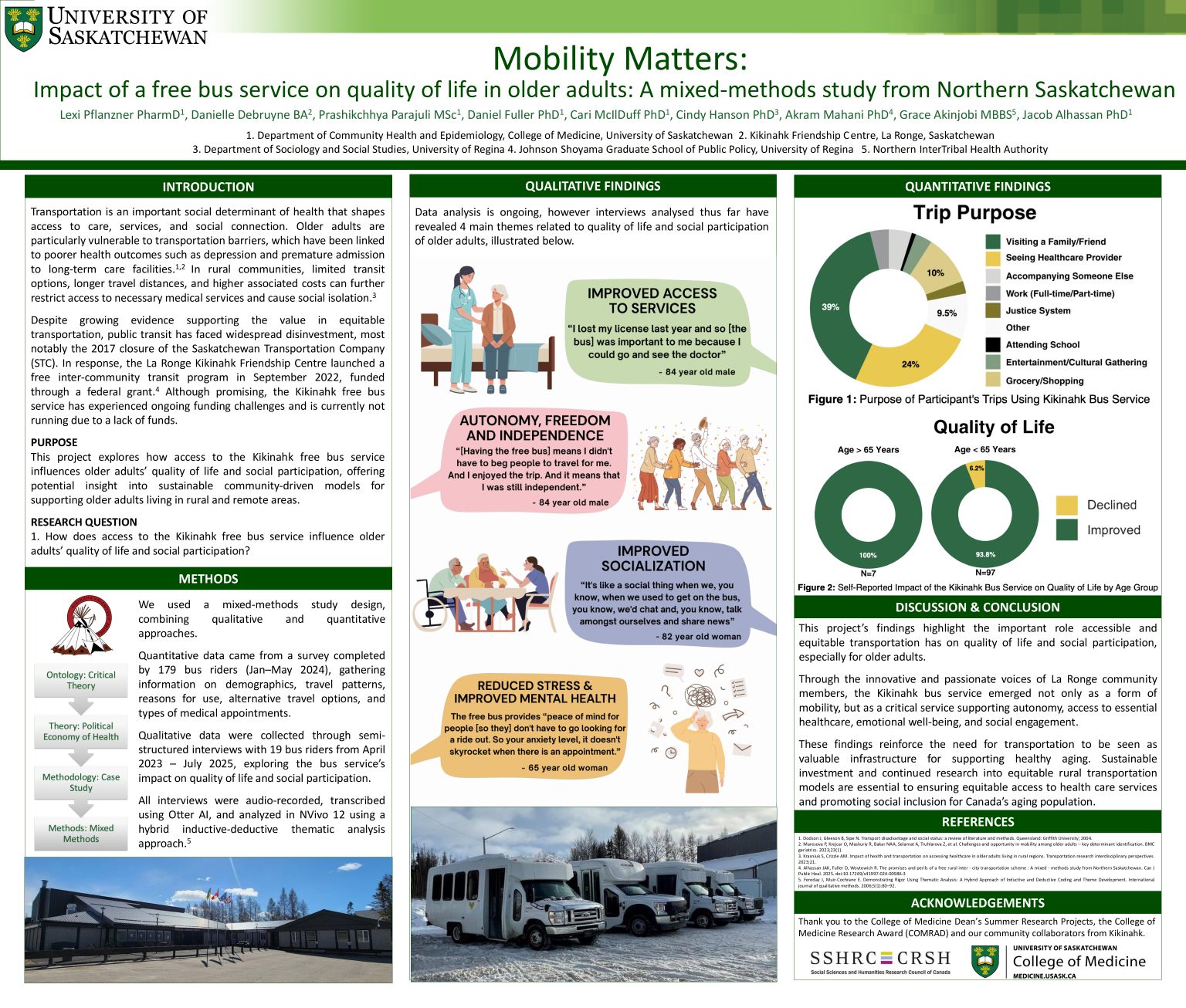
Mobility Matters: Impact of a free bus service on quality of life in older adults: A mixed-methods study from Northern Saskatchewan
Lexi Pflanzner
Transportation is a critical yet often overlooked social determinant of health, shaping access to care, services, and social connection. In response to transportation gaps in rural Saskatchewan, community-led initiatives like the Kikinahk bus service in La Ronge have emerged to improve access to healthcare services and support social participation. We collected quantitative data from 179 bus riders on demographics, travel patterns, reasons for use, alternative travel options, and types of medical appointments. In addition, we conducted semi-structured interviews with 19 bus riders to explore how access to the Kikinahk bus influenced older adults’ quality of life and social participation. Participants used the bus for various purposes, including visiting family and friends and attending medical appointments. Thus far, qualitative data analysis has shown that the bus service supported older adults by promoting autonomy, freedom, and independence; improving access to services; supporting socialization; and reducing stress while improving mental health. These findings reinforce the importance of viewing transportation as essential infrastructure for healthy aging. Sustainable investment and policy change to support equitable rural transportation models are critical to ensuring access to healthcare services and promoting social inclusion for Saskatchewan’s rural and aging population.
